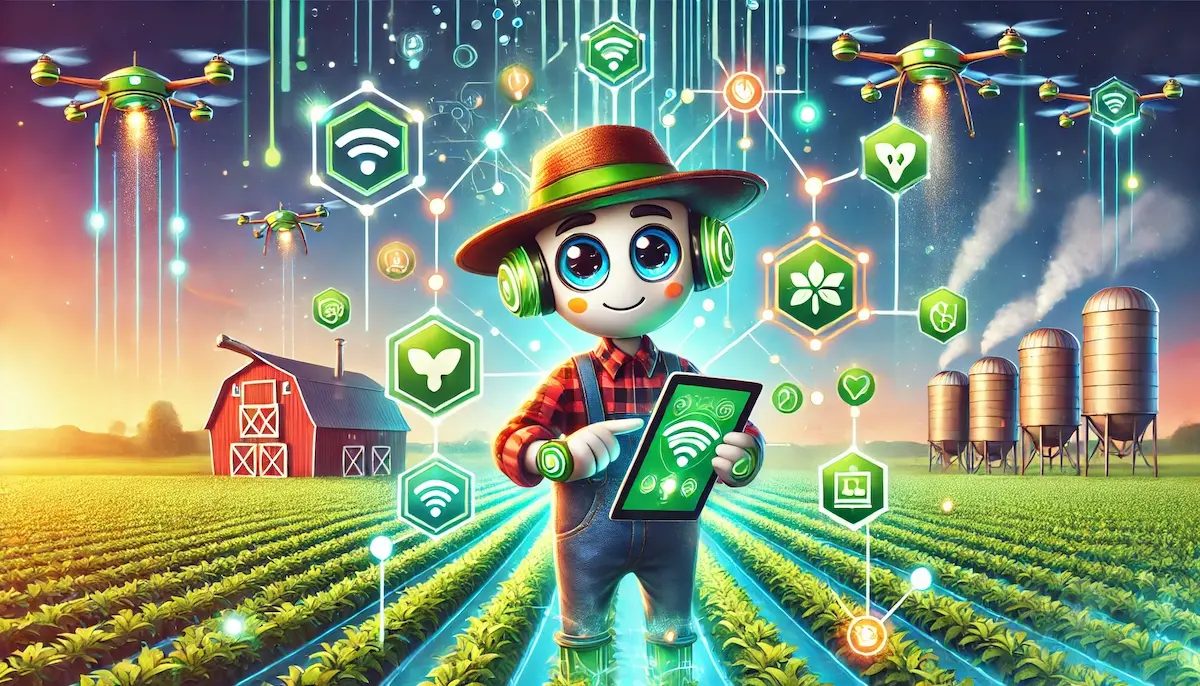Smart farming, also known as precision agriculture, is revolutionizing the way we approach agriculture by leveraging technology to optimize crop yields, reduce waste, and enhance sustainability. This modern agricultural practice combines various advanced technologies such as the Internet of Things (IoT), artificial intelligence (AI), drones, and big data analytics to improve farm management and productivity.
What is Smart Farming?
Smart farming involves the use of high-tech equipment and systems to monitor and manage agricultural activities. This includes soil sensors, GPS-guided tractors, automated irrigation systems, and drones equipped with cameras and sensors. These technologies work together to collect real-time data on various factors like soil moisture, temperature, crop health, and weather conditions. Farmers can use this data to make informed decisions about planting, watering, fertilizing, and harvesting crops.
Key Technologies in Smart Farming
Internet of Things (IoT)
IoT devices play a crucial role in smart farming by providing continuous monitoring and data collection. Sensors placed in fields measure soil conditions, weather patterns, and crop health. This data is transmitted to a central system where it can be analyzed and used to make precise adjustments to farming practices.
Drones and Remote Sensing
Drones equipped with cameras and sensors can capture high-resolution images of crops and fields. These images help farmers identify issues such as pest infestations, nutrient deficiencies, and water stress. Drones can also be used for tasks like spraying pesticides and monitoring livestock.
Artificial Intelligence (AI) and Machine Learning
AI and machine learning algorithms analyze the vast amounts of data collected by IoT devices and drones. These technologies can predict crop yields, identify disease outbreaks, and recommend optimal farming practices. AI-driven systems can also automate tasks like irrigation and fertilization, ensuring that crops receive the right amount of water and nutrients.
Big Data Analytics
The large volumes of data generated by smart farming technologies are processed and analyzed using big data analytics. This helps farmers gain insights into crop performance, soil health, and environmental conditions. With this information, farmers can make data-driven decisions that enhance productivity and sustainability.
Benefits of Smart Farming
Smart farming offers numerous benefits that contribute to more efficient and sustainable agricultural practices.
Increased Crop Yields
By using precise farming techniques, farmers can optimize the use of resources such as water, fertilizers, and pesticides. This leads to healthier crops and higher yields, ultimately increasing food production.
Resource Efficiency
Smart farming minimizes waste by ensuring that inputs like water and fertilizers are used only when and where they are needed. This not only conserves resources but also reduces the environmental impact of farming activities.
Reduced Labor Costs
Automation of various farming tasks, such as planting, irrigation, and harvesting, reduces the need for manual labor. This can lead to significant cost savings for farmers and allow them to focus on more strategic aspects of farm management.
Improved Sustainability
By adopting sustainable farming practices, smart farming helps preserve natural resources and protect the environment. Precision agriculture reduces the overuse of chemicals, promotes soil health, and supports biodiversity.
Challenges and Future Outlook
While smart farming holds great promise, it also faces challenges such as high initial costs, the need for technical expertise, and data privacy concerns. However, as technology continues to advance and become more accessible, these challenges are likely to diminish.
The future of smart farming looks bright, with ongoing innovations expected to further transform agriculture. Advancements in AI, robotics, and biotechnology will continue to drive efficiency and sustainability, helping to meet the growing global demand for food.
Blockfine thanks you for reading and hopes you found this article helpful.
